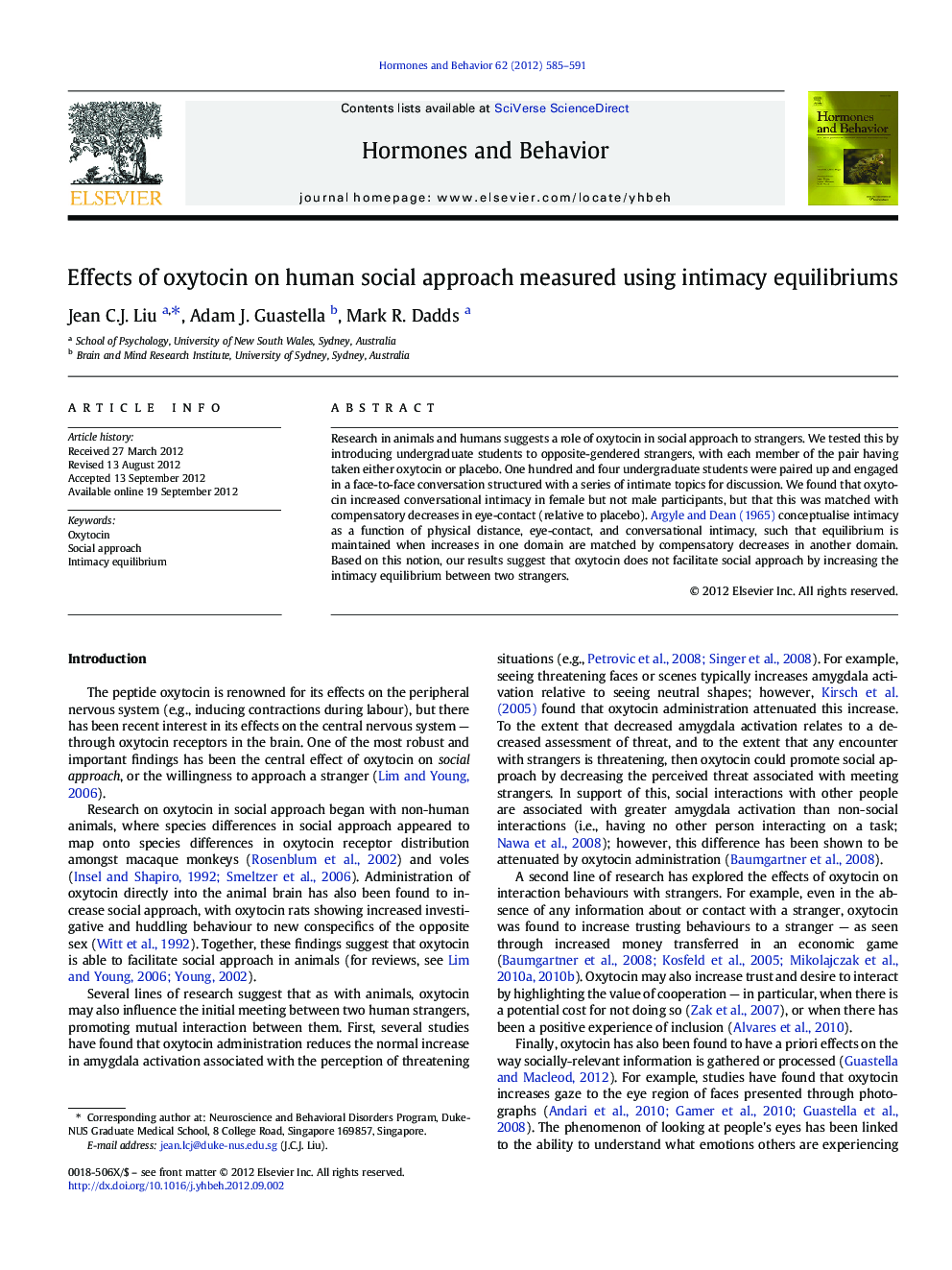| Article ID | Journal | Published Year | Pages | File Type |
|---|---|---|---|---|
| 324012 | Hormones and Behavior | 2012 | 7 Pages |
Research in animals and humans suggests a role of oxytocin in social approach to strangers. We tested this by introducing undergraduate students to opposite-gendered strangers, with each member of the pair having taken either oxytocin or placebo. One hundred and four undergraduate students were paired up and engaged in a face-to-face conversation structured with a series of intimate topics for discussion. We found that oxytocin increased conversational intimacy in female but not male participants, but that this was matched with compensatory decreases in eye-contact (relative to placebo). Argyle and Dean (1965) conceptualise intimacy as a function of physical distance, eye-contact, and conversational intimacy, such that equilibrium is maintained when increases in one domain are matched by compensatory decreases in another domain. Based on this notion, our results suggest that oxytocin does not facilitate social approach by increasing the intimacy equilibrium between two strangers.
► Previous research suggests a role of oxytocin in social approach to strangers. ► 104 healthy adults were paired up, with each member given oxytocin or placebo. ► During conversation, oxytocin increased disclosure in females but not males. ► However, oxytocin in females resulted in compensatory decreases in eye-contact. ► These results suggest that oxytocin does not facilitate social approach by increasing intimacy between two strangers.
